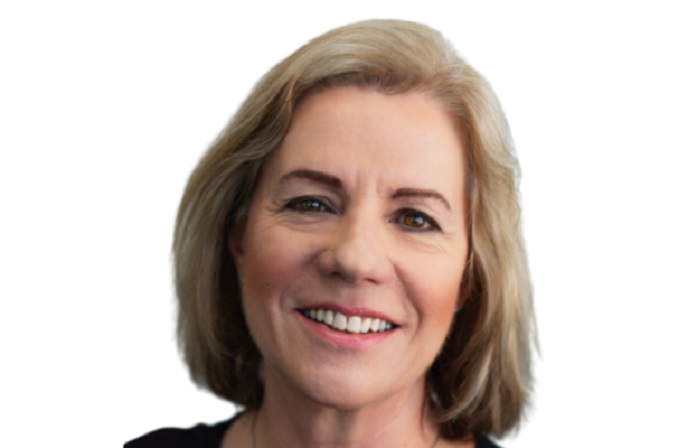
FST Media: What are your innovation priorities for the next 12 to 18 months?
Salazar: The way consumers interact with technology and engage with banks, merchants and each other is changing. At Visa, we have been evolving our approach along with these changing consumer demands and we will continue to work with our clients and partners on multiple fronts. We have an ‘open innovation’ approach which enables us to work with third parties globally including universities, government agencies, venture capital firms, start-ups and technology incubators to determine the possible uses of new technologies in a safe environment and eventually take some of these technologies to the stage where we can integrate them with our global processing network – VisaNet.
One key focus area is to enhance the payment experience on mobile devices. Mobile connectivity is changing the entire commerce ecosystem. Mobile today is not just referring to a phone but to new form factors – watches, fridges, glasses – that will all connect to one another through the cloud and become enabled for payments. With today’s 10 billion connected devices growing to more than 50 billion by 2020, our priorities will be to enable mobile payments of any kind to happen. (Changing Everything We Know about Commerce – Again, Ryan McInerney, President, Visa Inc.)
Visa has a very simple vision – we want Visa accounts to be used and accepted in the digital world as easily as in the physical world. This vision recognises that although the plastic card will still be necessary for some time to come, it might not be sufficient. This is why we make it a priority to help our clients manage this balance between plastic and digital devices.
FST Media: What will payments look like in 2020?
Salazar: Our vision for the future of payments is rooted in the belief that partnership and collaboration is the foundation. Defining the next generation of payments technologies that enable consumers to make purchases, send funds, pay bills with mobile devices, tablets and PCs, will require close collaboration between financial institutions, retailers, technology partners, payment networks, processors, and mobile network operators. We will continue to enable secure electronic payments – anytime, anywhere – and to empower consumers to make payments with any device, mobile network or payment application they choose. Likewise, we are committed to working with our clients and partners to determine how new technologies will work within the payments ecosystem and ensure they meet industry standards for security, usability and performance.
FST Media: What role will technology play to enable Visa to create a seamless customer experience across all touch-points?
Salazar: New technologies, in particular, mobile, have had a profound impact, shaping the way consumers shop, pay, and get paid. In October 2013, Visa, together with MasterCard and American Express proposed a new standard for digital payments to enhance the security and simplify the consumer purchasing experience when shopping on a mobile phone, tablet, PC, or other smart device. This new standard allows for the traditional 16-digit primary card account number to be replaced with a digital account number or “token” for online purchases and face-to-face transactions initiated with mobile devices.
Tokens help to simplify the purchasing experience for consumers by eliminating the need to enter and re-enter the account number when shopping on a mobile phone, tablet, or PC. As consumers are demanding increased protection of their personal data when shopping, the use of payment tokens will reduce the threat of sensitive data being compromised. Also, in the event that the device is lost or stolen, the digital account number can be disabled without the need to reissue the primary card.
Apple is one of the first partners to take advantage of the new Visa Token Service, enabling consumers to make secure payments with mobile devices.
FST Media: How has Visa payWave added value to the business, and what is next for contactless payments?
Salazar: Visa payWave has laid the groundwork for mobile payments. We have seen a significant uptake in the adoption of Visa payWave with one in every two face-to-face Visa transactions now being made via Visa payWave in Australia and one in five Visa transactions being made via Visa payWave in Singapore. It is through the same contactless terminals that consumers will soon be able to make payments with their mobile device.
With the introduction of more NFC ready payment devices and technology, we will see even greater adoption of Visa payWave. Visa payWave works with phones equipped with NFC and enables consumers to make fast and secure Visa payments by simply waving their smart phone in front of a contactless payment terminal. Consumers can now leave their physical wallets behind and securely store their payment accounts in their NFC-enabled mobile phone – and in the future – their loyalty cards, mass transit cards, driver’s license and passport.
I am encouraged by the future of NFC as a key interoperable standard for face-to-face transactions. Tokenisation will enable the 16-digit primary card account number to live in a secure digital environment while Visa payWave terminals will allow consumers to use their mobile devices seamlessly and securely in the physical world.
FST Media: What are your strategic plans to grow Visa’s core and emerging products in the payments space?
Salazar: Our largest opportunity is in cash displacement. Cash is our biggest competitor and we devote a lot of our time and energy to understand consumer purchasing trends and the best way to displace cash. Over the last five years, we have seen a large number of new entrants into the electronic payments industry and we welcome the opportunities that they bring as we are all looking for better ways to empower consumers to pay seamlessly in a secure electronic payments environment without needing cash. This is why we believe in the ‘open innovation’ approach, where we work with various third parties, which will enable us to drive the future of digital payments.
This is the core of our strategy as we continue to work with our financial institution clients to identify new cardholder segments to create attractive programs that will encourage greater card use and therefore displace cash.
FST Media: What can consumers expect from Visa’s upcoming contactless payment products with the emergence of more wearable devices?
Salazar: Visa’s contactless payments technology, Visa payWave, has laid the groundwork for mobile payments. With the adoption of more wearable devices, Visa payWave will continue to play a significant role in enabling consumers to make fast and secure payments by simply waving their devices in front of a contactless payment terminal.
FST Media: How will HCE technology add value to the business?
Salazar: Host Card Emulation (HCE) allows cloud-based applications to emulate a smart card, eliminating the need to physically store account information on the device.
For financial institutions, this is a new option to develop commercial mobile NFC payment programs. HCE will enable them to issue and manage Visa accounts in a cloud. Fundamentally, cloud-based mobile payments have the potential to reduce the cost and complexity of deploying mobile NFC payments. Visa is technology agnostic and believes in an ‘open’ approach to mobile payments: empowering consumers to make mobile payments with whatever device, mobile network, or payment application they choose. We fully expect continued innovation in mobile payments, and are committed to working with our clients and partners to determine how new technologies will work within the existing payments ecosystem and ensure they meet industry standards for security, usability and performance.
For retailers, they now have the option to include Visa payment functionality directly into their branded applications, and allow consumers to link their Visa account to the merchant application. But cloud-based mobile applications can deliver benefits to merchants beyond payments – allowing them to implement their own mobile strategies and providing them an opportunity to differentiate their products and services.
For consumers, hosting payment accounts in the cloud can make paying with a mobile phone as easy as accessing a mobile app, and waving the device in front of a contactless terminal. Fast, convenient and secure.
We believe the move into cloud-based mobile payments represents an inflection point to accelerate mobile payments globally.
FST Media: How will biometrics and wearable technology affect the payments industry?
Salazar: Biometrics and wearable technology bring greater opportunities to the payments industry. We welcome innovation and we will continue to work with our financial institution clients in embracing these new technologies to allow consumers and merchants alike to pay and be paid with the speed, convenience and security that Visa provides. Consumer verification and authentication will evolve as biometrics become more accessible. Wearables are becoming more ubiquitous and are gaining popularity among consumers. This trend creates more opportunities for the use of Visa Token Service and will also lead to a greater adoption and use of Visa payWave contactless payments.
FST Media: How do you encourage a culture of innovation in your team?
Salazar: Electronic payments is a young industry. You can trace the history of money and banking for centuries, but payments is only a fifty-year-old journey. During this short timeframe, Visa has been at the forefront of many innovations. I believe in an open approach, and I always encourage my team members to learn from one another as we continue to cultivate an environment that encourages greater collaboration and sharing.
FST Media: Every leader has a legacy they wish to be remembered for, what is yours?
Salazar: Leadership is a privilege. I come to work every day hoping that I can spark ideas and solutions to displace cash.
If you would like to hear more from Mr. Ruben Salazar, he will be speaking at FST Media’s 2nd annual Technology & Innovation – The Future of Banking & Financial Services conference to be held at the InterContinental in Jakarta on the 3rd of December. Don’t miss out on this important industry event. Register and see the agenda here.





